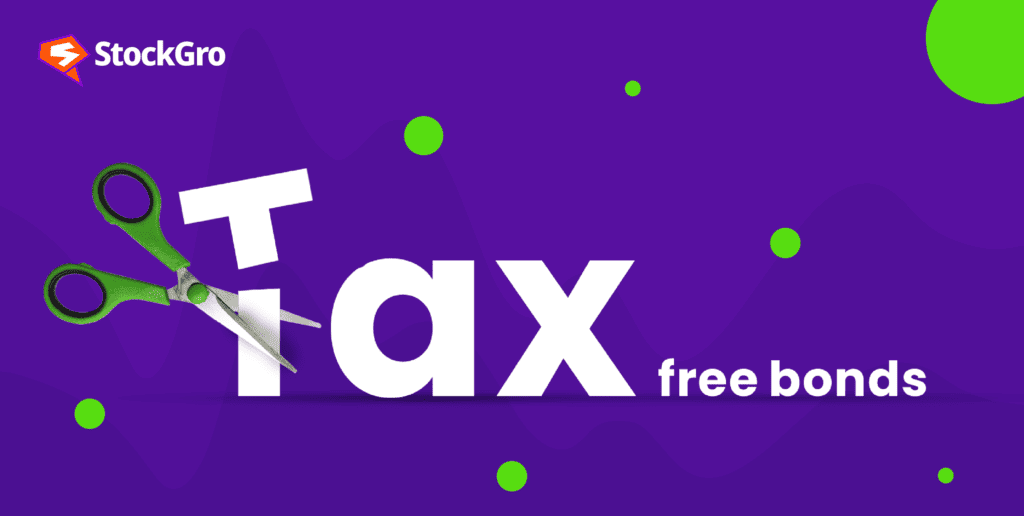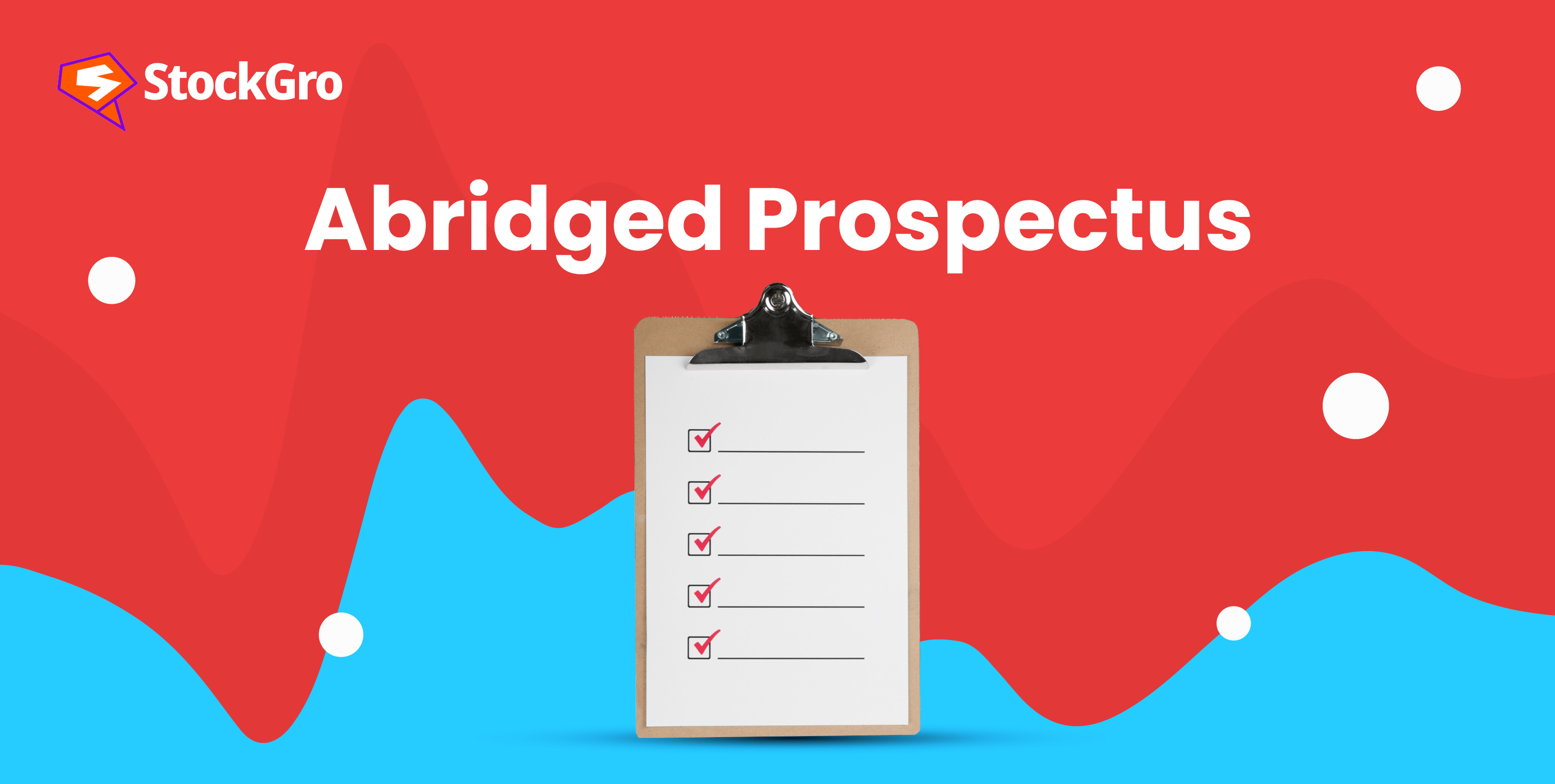
In today’s diverse landscape of investment opportunities, investors seek assets that promise rapid growth and substantial returns. Investment avenues like equities are rewarding but come with inherent risks and tax implications on returns.
However, there is another investment avenue worth exploring: bonds.
Bonds offer a more stable and secure investment option, and the government issues tax-free bonds that present an appealing opportunity for investors.
In this article, we will delve into tax free bonds in India, examining their characteristics, advantages, associated risks, and the process of investing in them.
What are tax free bonds?
A tax-free bond is an instrument that outlines a financial arrangement in which a bondholder lends money to government bodies or public sector undertakings (PSUs), at a pre-defined interest rate, known as the coupon rate. This lending agreement has a specified duration.
Tax-free bonds share similarities with other interest-bearing bonds, as they offer a fixed income. However, what sets them apart from regular bonds is that the interest income generated from tax-free bonds enjoys tax exemption under Section 10 of the Income Tax Act of 1961.
Some of the PSUs that raise capital through issuing government tax free bonds are IRFC, PFC, NHAI, HUDCO, REC, NTPC, and Indian Renewable Energy Development Agency.
Also read: What are inflation-indexed bonds, and why should you care?
Features of tax free securities
Let us look at some of the features of tax free bonds:
Tax exemption
The interest income generated by these bonds enjoys exemption from income tax, making them an attractive choice for investors seeking to generate tax-free earnings.
Fixed yield
Tax-free bonds offer a fixed interest rate throughout their tenure, ensuring a consistent income stream.
Extended maturity
Tax-free bonds come with a lengthy maturity period of 10 to 20 years, catering to long-term investment objectives.
Strong creditworthiness
These bonds are issued by Public Sector Undertakings with robust credit ratings, indicating a relatively low risk of default.
Holding period
Tax-free bonds have a prescribed lock-in period, during which they cannot be redeemed before maturity. However, they can still be traded in the secondary market.
Also read: Exploring the bond market for beginners
Who can invest in tax-free bonds?
Here is a list of individuals and institutions who can invest in tax-free bonds:
Retail individual investors (RIIs)
RIIs encompass individual investors, Hindu Undivided Family (HUF) Karta, and Non-Resident Indians (NRIs). RIIs can apply up to Rs. 10 lakh in each bond issue. NRIs have the flexibility to subscribe to tax-free bonds either on a repatriation or non-repatriation basis.
High net worth individuals (HNIs)
If individual retail investors invest more than Rs. 10 lakh in tax-free bonds, they are categorised as HNIs.
Corporates and trusts
This category encompasses both businesses, including corporations, and various legal entities like trusts. They seek tax-free bonds as an investment option for generating stable income and, in the case of trusts, often for wealth preservation or philanthropic purposes.
Qualified institutional buyers (QIBs)
Institutional investors meet regulatory criteria for participating in financial markets, including tax-free bond investments. They include mutual funds, insurance companies, pension funds, banks, and foreign investors. QIBs play a significant role in market liquidity and pricing due to their sophisticated nature and ability to invest large sums.
Calculation of yield to maturity
Let’s examine an example with the following particulars:
Purchase price: ₹10,000
Coupon rate: 8%
Face value: ₹10,000
Holding period: 5 years
Here’s the method for computing the yield:
Yield (%) = (Annual Interest (₹) / Purchase Price (₹)) * 100
= (₹800 / ₹10,000) * 100 = 8%
Therefore, in this case, the yield stands at 8%.
Also read: What are perpetual bonds?
Benefits of tax-free bonds:
- Tax free securities in Income tax offer interest income that is entirely exempt from income tax providing investors with a higher after-tax return.
- These bonds provide a stable income stream with fixed interest rates over the bond’s tenure. This feature is attractive to retirees and those seeking predictable income without market volatility.
- Tax-free bonds carry low-risk because they are issued by PSUs. They are a relatively safer choice compared to other investment options.
Drawbacks of tax-free bonds:
- While the interest on tax free bonds is tax free, any capital gains earned from these bonds are subject to taxation.
- Tax-free bonds are exposed to the risk of inflation, leading them to lose purchasing power. There is also a reinvestment risk as you might reinvest the proceeds at lower interest rates after maturity.
- If you invest in tax-free bonds with a maturity period of 10 years, you will not be able to redeem the bond before it matures.
Conclusion
In conclusion, tax-free bonds in India present an appealing blend of stability and tax benefits. They offer tax-exempt income and predictable returns making them an attractive choice. They are a good investment choice for someone seeking low-risk instruments in their portfolios.
However, investors should be mindful of potential capital gains taxation. The prescribed lock-in period, with the option of trading in the secondary market, adds an element of liquidity.
Ultimately, tax-free bonds are a valuable addition to an investor’s financial toolkit, offering a balanced approach to wealth preservation and tax efficiency.

